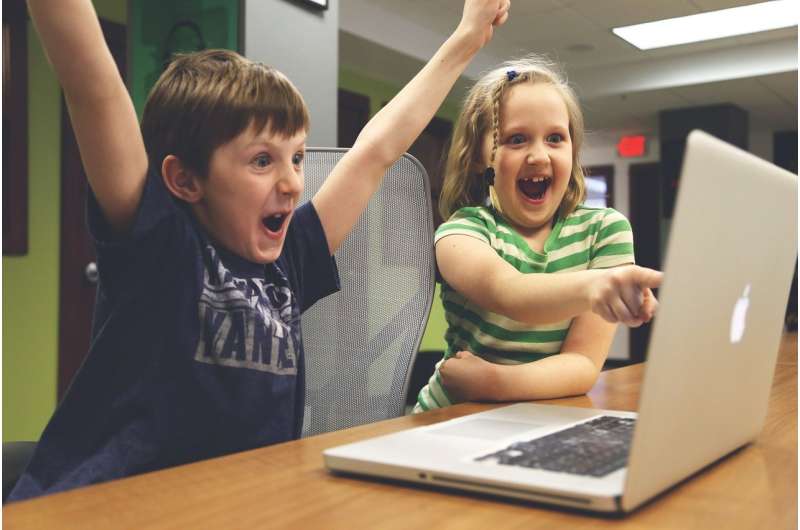Credit: CC0 Public Domain
Teamwork. Respect. Responsibility. Positivity. What if our children could learn these things while engaged in their all-time favourite pastime? Video games.
From 2016 to 2017, incidents of cyberbullying increased by 60%.
Then there's sexting, trolling, revenge porn, fake accounts, fake news. It seems everyone, at some stage, has been impacted by the toxic potential of the internet. But while we can coach footy players and basketball teams about sportsmanship and fair play, the same can't always be said for online gamers.
So, hands up whose kids want to sit and talk about online manners for longer than, say, 5 seconds?
And hands up whose kids would love to play video games for, well, all day long?
Yep.
So that's where High School League of Legends clubs come in. Kids play as a team, and they're (massively) (super-massively) motivated to become better team players. It's a match made in online etiquette heaven.
Learning through play
League of Legends is a wildly popular five-a-side computer game.
"It's an invasive team-based sport like rugby, AFL, basketball—except that it's online," says Ivan Davies, who works at Riot Games, the creators of LoL.
"You work together as a team to achieve multiple objectives. This affects team cohesion, performance and the likelihood of victory."
High School League of Legends clubs. Credit: LOL ESPORTS
High School LoL clubs not only give kids a chance to play LoL at school, they also provide teachers with resources and lesson plans for teaching good digital citizenship. The lessons revolve around students analysing the behaviours they observed and exhibited during their own game.
"Just like in sport, when you're pushed to the limit, you don't always behave in a positive way," Ivan says. But, as many LoL players know, "the more productive and positive your team's conversation can be, the more likely you are to win."
The result is classrooms full of super-engaged kids, all eager to practise positive online behaviour.
"They're having fun, they're super-connected and they want to improve," says Ivan, a former teacher himself. "Once you've cultivated an engaging environment, you can teach students anything."
Online, offline, all the time
Ivan recently ran a masterclass for teachers at Scitech, using LoL to explore the world of competitive online gaming and how online play can be used to foster good sportsmanship—online and in the real world.
"We're committed to that, but we know it is difficult to avoid or remove unfriendly, uncomfortable negative moments, not just in video games but also in life. When you're faced with those moments, the message to each player is you are in control.
"You get to choose how you will respond. That's what I want every young person to know."
Provided by Particle
This article first appeared on Particle, a science news website based at Scitech, Perth, Australia. Read the original article.























